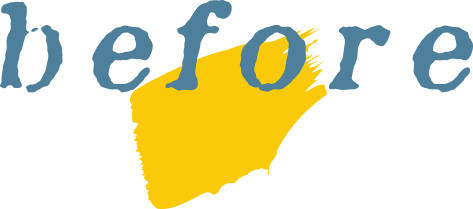Time, as we know, is the most precious asset. Knowing how to manage it and make it as productive as possible can have a huge impact on our lives. Mathematics helps us to better understand the importance of this concept. Consider, for example, an employee who loses at least 8 hours of work in useless and not very productive operations due to some deficiency in his temporal organization; every year our employee will “waste” 75 working days. We understand that by teaching proper management of the use of time, the savings for the company will be enormous.
There are countless texts on time management. In this article we wanted to summarize the five main points and which, if put into practice, turn out to be more effective.
Surely you will already know some of them, in which case I invite you to ask yourself if you really put them into practice or if you only know them in theory. Because a theory without practice is always of little use …
1. Priority
Needless to say, setting your priorities is the most important point of time management. Every day we are inundated with tasks to be completed, nasty “to do lists” that the more we use the more they get longer. So let’s try replacing the infinite lists with an essential priority list. The exercise is very simple: at the beginning of the day, with a fresh mind, or even the night before for those who prefer, we draw up a list of the three activities that have the utmost importance. The number is arbitrary, but it is recommended not to go beyond six elements. The goal of the day will be that that list of 3 or more tasks is completed.
The secret to succeeding? Do it right away. Put aside any secondary and unnecessary activities and promptly focus on what we have identified as our priorities.
Of course, let’s not forget that our time management often collides with the demands and needs of our managers, who may have priorities different from ours. In this case, healthy negotiation will lead to an improvement in the use of time.
2. Stop
This is a fairly counterintuitive point: how can I be maximally productive by stopping? Well, it has to do with a functioning principle of our brain: our mind in fact has a limited ability to keep its productivity high. If we concentrate for too long without taking breaks, after about an hour and a half, our ability to concentrate will begin to decline rapidly. Returning to the example of the beginning, if our employee does not take regular breaks, the last hours will be highly unproductive.
We must therefore “know how to dose” by alternating intelligences between activities and pauses. There are various “rhythms that we can adopt” and maybe everyone can explore them to find out which is the most suitable for them. Generally it is suggested to work in “blocks” of 60 or 90 minutes and then allow yourself a ten-minute break, or a five-minute break every 25 minutes of work. Find out which “pace” is best for you to be as productive as possible.
A note: when we stop we have to stop for real, without looking at the cell phone or thinking about what to do next. Much better a walk, a short chat or, for those who know how to do it, a short meditation. Even just lying down and closing your eyes for a few minutes will work just fine.
3. The Pareto principle or 80/20 law
There is no escaping: in biology as in the company will the 80/20 law always be valid? For those unfamiliar with it, it is a universal principle whereby 80% of the activity of a system will generate only 20% of the final product while the remaining 80% will be produced by the remaining 20% of activity.
The game is simple: write down your main activities and how much time and energy each one takes on a piece of paper. You can also do this by using percentages. Next to each activity, then write what percentage of “output” each activity generates and that’s it: you will have an overview of which are your most productive activities and which are less. It is now up to you to understand how to focus more on the productive ones and eliminate or reformulate the unproductive ones.
Always consider that there are activities that may be necessary even if they are unproductive (and therefore we should ask ourselves why) or activities that may be unproductive in the short term but very productive in the long term. Use your sensitivity and experience to tell them apart.
4. Delete
We could expand on this point and title them “Automate, delegate, reduce, delete”, but the key concept is to eliminate as many activities from your list as possible. Again, the exercise we propose is a simple awareness exercise (which is the key to any successful professional). Take a pen and paper and write down the activities you usually carry out during your day. You can also draw up the list simply by writing down all the activities you carry out for a few days, perhaps noting how much time you have dedicated to each one.
Once the list is finished, consider which of these activities can be eliminated. You will be surprised to discover that there is always a way to improve and perfect your daily management. In fact, you will find that some activities can be done in less time or more effectively, or that others can be delegated or even eliminated.
Have fun observing yourself too and finding out how you really spend your time. In fact, more than others, it is a question of eliminating “black holes”, that is the activity that more or less consciously swallow up your time.
5. Distractions
And here we are at the final monster that stands between you and the goal of a fully productive day: distractions! How many times does it happen to get lost on social networks, on WhatsApp or in useless calls? A brain that is continually distracted is a very unproductive brain. Every time we return to our task after an interruption it will be like having to restart the engine from scratch and it will take a while to get it to full capacity. Our mind is like a train: if it stops at every station, even the fastest intercity will take forever to reach its destination.
How to do in this case? Simple, once again we invite you to cultivate your awareness. Notice how often your work is interrupted and why. Is the interruption external? Or did you get distracted by yourself? How much time do you spend on social media? Can you create an interference-free workspace?
Returning to point two, we could say that the ideal work pace provides for an intense and fully concentrated activity for a certain amount of time, to be alternated with targeted, determined and healthy breaks.
If you realize, for example, that you continue to distract yourself, there are two cases: either you have not yet entered the phase of “maximum concentration and productivity” or you are tired. Then stop and take a break, consciously.
More articles
How to break free from competitiveness with colleagues
We have all perceived, at least once in our life (and perhaps much more than one) a sense of competitiveness; in reality, if you pay attention to it, you will find that competitiveness affects us in almost all life situations, from social ones, in which we want to...
Enhance intuition in the company thanks to the Management Constellations
What do Barak Obama, Albert Einstein and Elon Musk have in common? It goes without saying that they are characters of great intelligence, but what really unites them is their great capacity for intuition. Why is intuition important in the company? Intuition is...
How to write great emails
We now manage them automatically, every day, constantly; they are part of our life, of our routine, they determine our way of working, our relationships, our communication. Yet we don't give them so much importance, sometimes we respond automatically and open them...
Courage in the company: the key to your success
"Having courage" in your business environment means much more than "throwing yourself" or "taking risks", having courage is a concept that has a profound value, it has to do with our identity and the meaning it has for we our life in terms of personal fulfillment. An...
Mindfulness as a resource to work better and with less effort
In recent years you have often heard about mindfulness and the benefits it brings, both personally and professionally, for those who practice it consistently. But exactly why can it be beneficial for our well-being in the workplace? What concrete benefits can it bring...
Developing well-being in the company through emotional intelligence
Everyone talks about IQ, but there is another type of intelligence, equally important because of its enormous impact on our well-being and our decisions: emotional intelligence.First theorized in 1990 by Daniel Goleman, IE can make a difference in the workplace,...
Stop to go faster: how smart breaks can boost productivity
Let's face it: in 2022 the idea that to get the most we must squeeze as much as possible for eight consecutive hours (or more) is no longer credible.Numerous studies confirm that an employee engaged for 8 consecutive hours will see his performance curve drop...
How to give feedback correctly can help your business grow
Feedback is a fundamental element in an efficient, productive and above all pleasant workspace. Often we avoid sharing our opinion to avoid potential conflicts, yet feedback is a resource that, if known to manage, can improve the self-awareness of our interlocutor,...
Self-esteem at work: valuing oneself and others effectively
How important self-esteem is in the workplace (as in life) is certainly an obvious concept: for all of us it is important to have the perception of one's own value, in order to work better, feel more satisfied and be more productive. Obviously, also for managers it...










